Rachel Pageau’s long winding road back to worlds
How the tireless Chicoutimi, Que. rider successfully switched from XC to the wild world of downhill
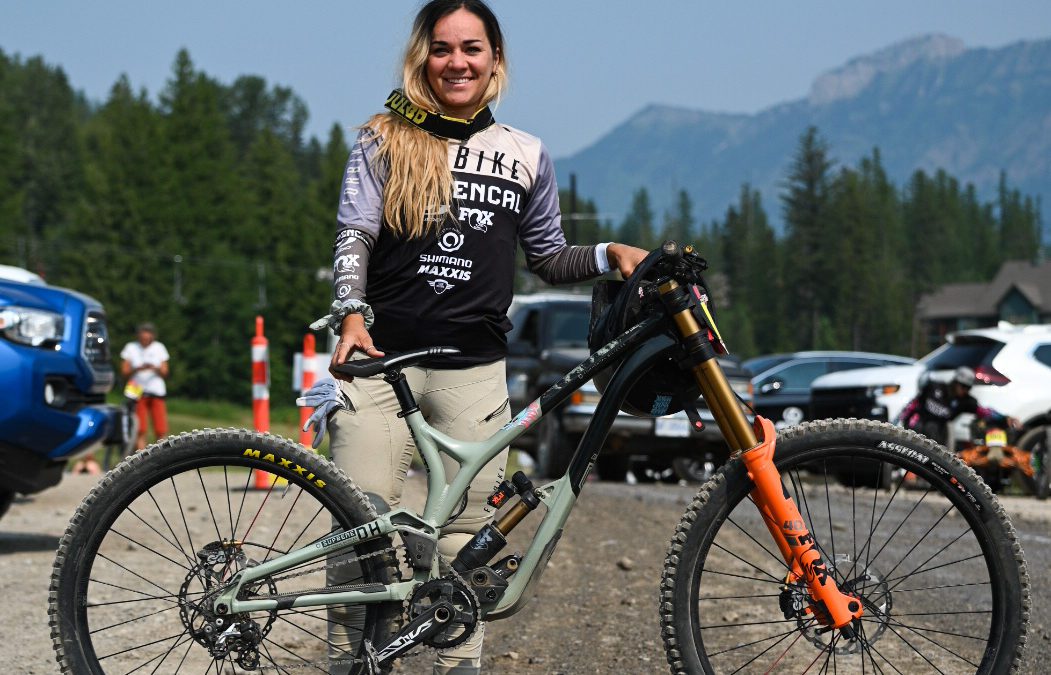
This week, Rachel Pageau will wear the maple leaf at world championships again. It’s part of the Chicoutimi, Que. racer’s long journey from racing cross country to the wild world of international downhill racing. Her appearance in Val di Sole is the result of a huge amount of effort, recovering from significant injuries in 2020, hard work and just a little bit of controversy.
Before racers arrived in Val di Sole, I caught up with Pageau over the phone from her pre-worlds training camp in Morzine, France. We talked about the difficulties of making the switch to downhill, self-funding her race program, and the highs and lows of using social media as an athlete.
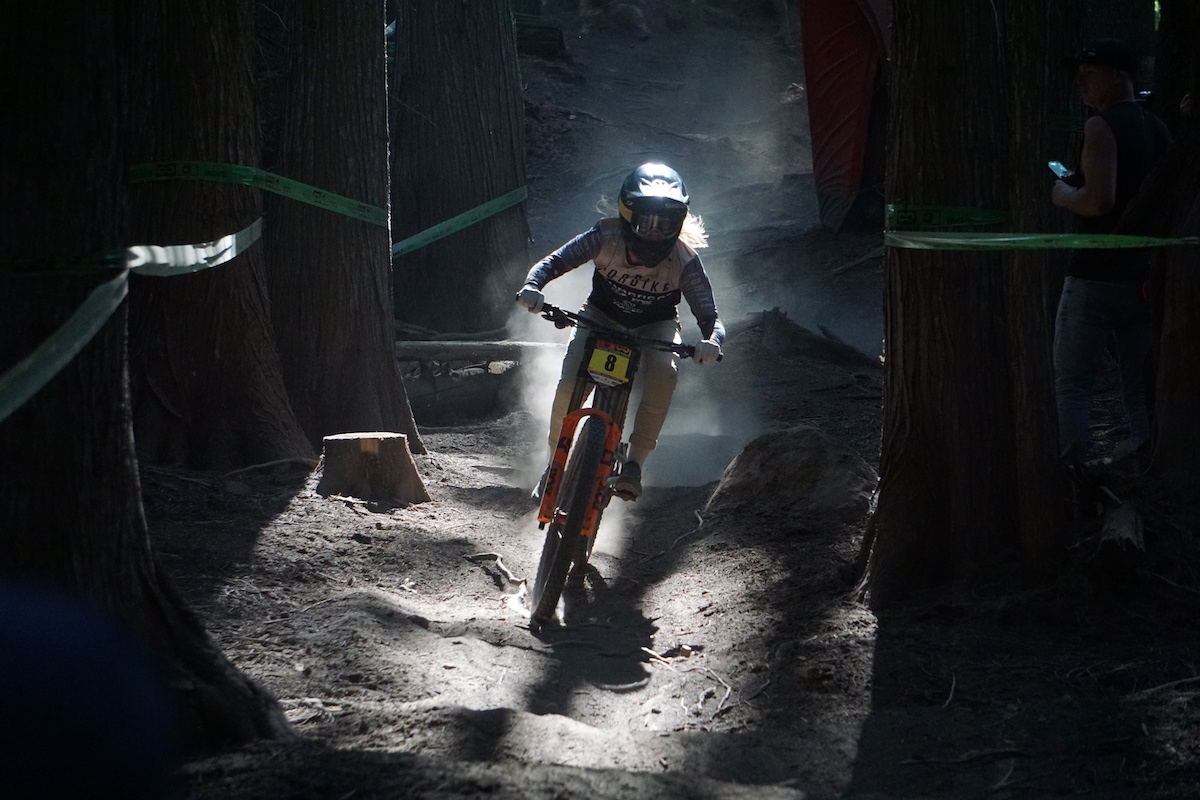
Making the switch: from cross country to downhill
Like many young riders, Pageau’s first entry into the world of bike racing was through the relatively accessible world of cross country. From the start, and despite quick success, he eyes wandered to the other side of the tape to the world of downhill.
“I was racing XC for 10 years, but even as I was doing that I always would be looking over at the downhill races thinking ‘oh that’s so cool,'” recalls Pageau. “In my mind it was too late. You can’t switch from XC to downhill, it’s too hard. But it looks so sick.”
Instead, as her interest waned after years of national team-level XC racing, she started racing enduro through the U.S. series, Eastern States. The move wasn’t as hard as she’d expected.
“That was a good stepping stone before getting into DH,” says Pageau. “The move to enduro went smooth. I was always one of the more technical riders in XC, and that’s the part I enjoyed the most. The enduro courses weren’t that much more technical.”
After some quick successes – Pageau won several Easter States Cup events in 2016 and raced her first Enduro World Series event in 2018 – she set her sights on downhill. While the first transition went smooth, downhill was a big change. After doing well at Eastern States Cup downills, she headed to the World Cup. The change in difficulty there was jarring.
“The first world cups I did, I’d do track walk, then I could not sleep,” Pageau recalls. “I’d close my eyes and see those road gaps, and just think ‘What if I can’t do it, what if I can’t do it.’ That was the hardest step. All the races have big jumps and drops now and that’s what scares me the most.”
After a few years of racing, Pageau’s more at home on the international scene. She sleeps before races now, but there’s still the occasional feature – like the Les Gets road gap that only five women hit, ending in serious crashes for three of them – that are still intimidating.

Cross country beginnings and Olympic dreams
If Pageau had doubts about the switch, it looked much more successful from the outside. The speed with which she adapted to the new discipline isn’t too surprising if you look at the way her race career started. In her first year of racing as a junior, Pageau ended up at world championships.
“It all happened so quick. When I started riding bikes, I told my parents it’d just be for fun,” Pageau recalls. “Then, a month later there was a local race and I asked my parents if I could just try that one. From there, I did all the races that summer.”
With a background in downhill ski racing, Pageau picked up two wheels quick. Local races led to Canadian nationals, that happened to be in Quebec that year.
“You do well at that, and the national coach is there asking you if you want to go to Austria to race, and it’s like ‘What? Yes!’ – it just all happened at once.” Pageau dove in to racing, signing on to the national team that year.
“I missed my high school prom and went to World Cups and world champs. That was my first year junior.”
There was quick success on the cross country circuit. Pageau won a Canadian national title as a junior, then was third behind Kate Courtney in a junior international race. Some solid results in under-23s, especially in the shorter-faster eliminator format followed. But with her mind on the more gravity fed side of the sport, Pageau made the switch in her last year of under-23. The decision wasn’t easy.
“Leaving XC behind felt like quitting,” Pageau says, quickly correcting “I didn’t quit. I switched. But to me, it felt like quitting. I started ski racing at six and the goal was always to go to the Olympics. When I switched to cross country, that goal carried over. It was still to go to the Olympics, just on bikes.”
“When I was racing XC, I was always super proud to wear the maple leaf,” She explains. With neither enduro or downhill being an Olympic sport, it meant closing a big chapter of her life up to that point. “That was the hardest thing, leaving the national team. There’s no national enduro program and barely on in downhill.”
More than just leaving the Olympics behind, it also meant the end of what support Pageau had for her racing up to that point. With Olympic status comes support from the national federation. While Cycling Canada does enter a national team at world championships, there has been, historically, little support beyond that weekend. “You get to wear the jersey for one day,” explains Pageau. “That’s it. that’s the support.”
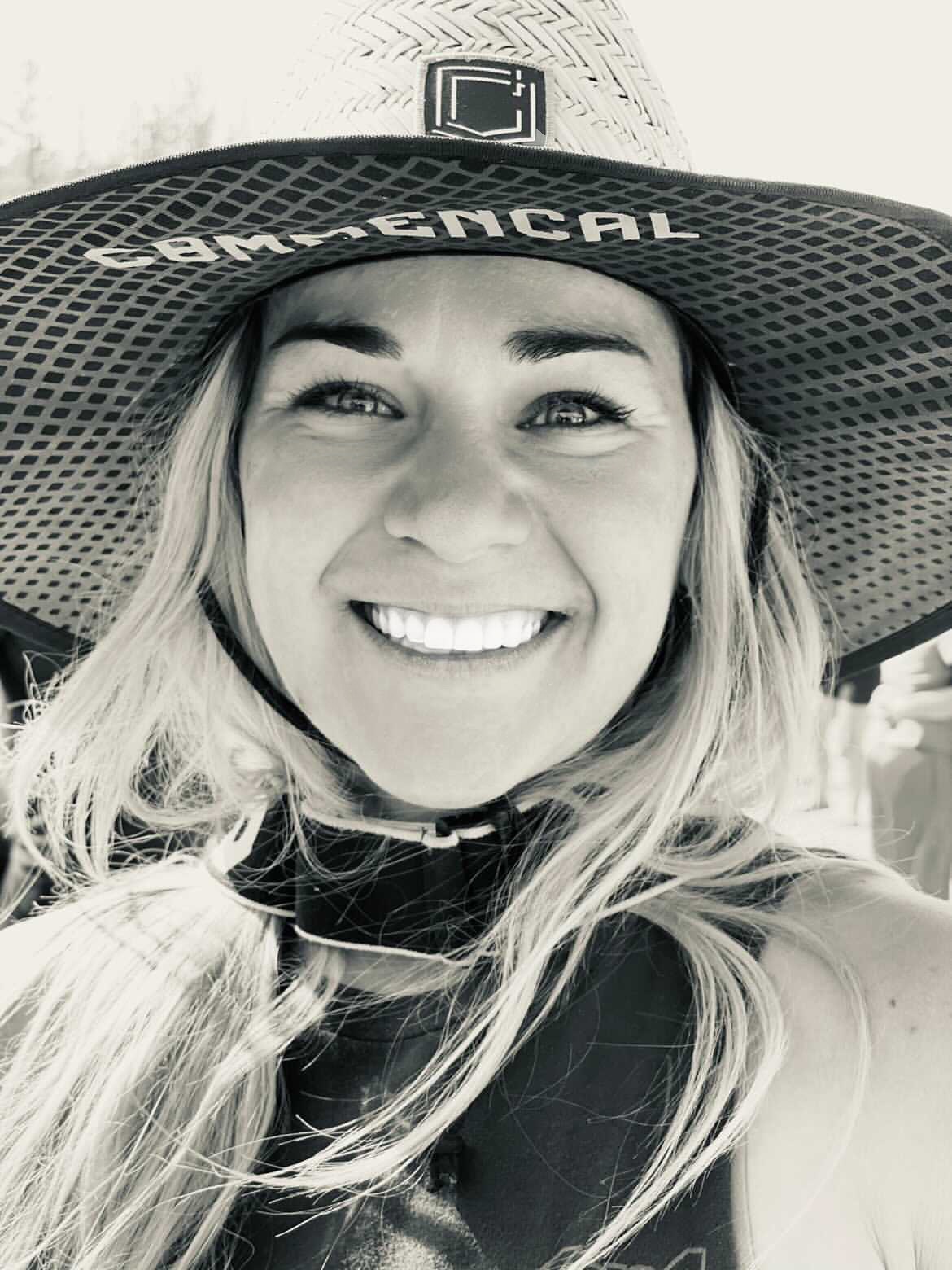
Privateer life
When Pageau started racing enduro, some of her support from Devinci carried over for the first season. “Since then,” Pageau says, “It’s been all me.”
Pageau self-funds her travel, accommodation and training. With racing taking up the summer season, that means a hectic winter program. The Canadian works two jobs on top of her university studies and, of course, training. She also deals with all her own sponsor relations, working hard to put together bike and equipment support to make the season easier, financially. Doing so requires a daily schedule that’s tiring just to read.
“This winter was absolutely crazy. I’d wake up at 6 AM, work at the school coffee shop for 6-8hrs. then class, then train in the gym. Then work second job at night from 4-9PM most days. Then weekends is catching up on school, homework and sponsor e-mails. Being a privateer is hard work during the season, but you spend your offseason trying to connect with companies, sending e-mails, trying to get your equipment lined up.”
“I’m really lucky this year, I ride for Commencal U.S.A., and they provide support when they’re at races,” Pageau says, before correcting. “I’m lucky, but I’ve worked for it. I’ve worked on building connections with brands every year. That is one fun part of being a privateer: you build real relationships with the brands.” In addition to Commencal frames, Pageau rides Fox, Shimano, Industry Nine, Maxis and Julbo Eyewear, her one sponsor that provides financial support.”
With all that effort, Pageau estimates she’s made it just over half way through the season before the savings ran out. Now back overseas for the second string of World Cup and world champs races, she’s dealing with things as they come.
“I’m in Europe for a month now – and my biggest stress is money, just knowing I’m going deeper into the red from this point on,” Pagea shares. “I’m lucky. My parents support me. But, at 27, they’ve lent me money but also want me to be independent. I’ll spend the fall working to pay that back.”
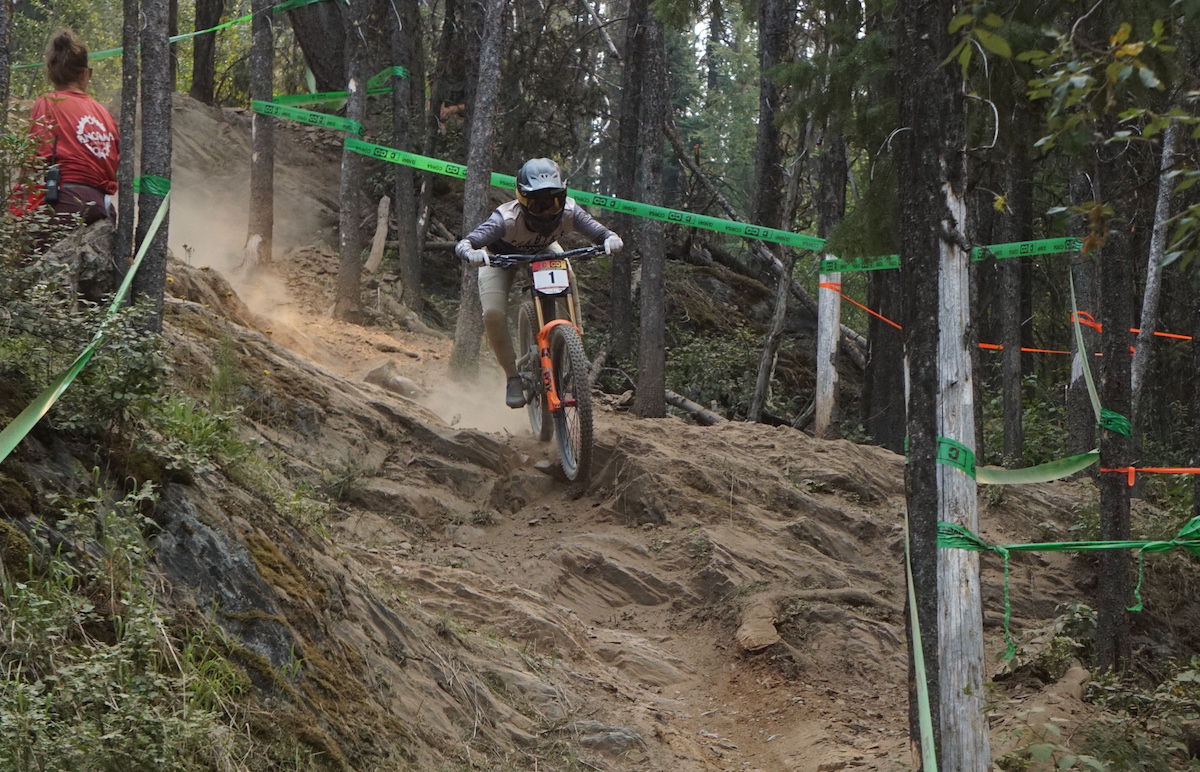
Privateer is more than money
Getting ready for the season is one thing. Making it through the season without team support is another. While Commencal provides support in North America, in Europe where the big races are, Pageau’s fending for herself. She arranges travel, accommodation, takes care of her own bikes and, oh yeah, races.
“It’s hard physically, because you’re doing twice the work. But also mentally, just because you’re on your own,” Pageau shares. It hits your confidence a bit, just being on your own at the races. You have a bad run and it’s easy to fall into the negative thoughts, that spiral of ‘I’m all on my own here, what am I even doing, I don’t deserve to be here.'”
“It’s hard because sometimes I feel so old, like I’ve been doing this forever and I get really hard on myself. like, why are you trying to do this. But I raced XC for 10 years, I have to remind myself I’ve only been racing downhill World Cups for 2-3 years. So maybe, be a bit nicer to yourself, you’re still new.”
It’s a problem Pageau’s aware of, and one she’s planning to deal with for 2022 by hiring a coach.
“My parents are really supportive of anything I do, but they live 2000 miles away,” Pageau says. “One of my main goals for next year is to have the budget for a coach. It’ makes such a big difference. Not just telling you want to do, but helping with everything else. You have a bad run, and they help refocus you and keep you motivated.”
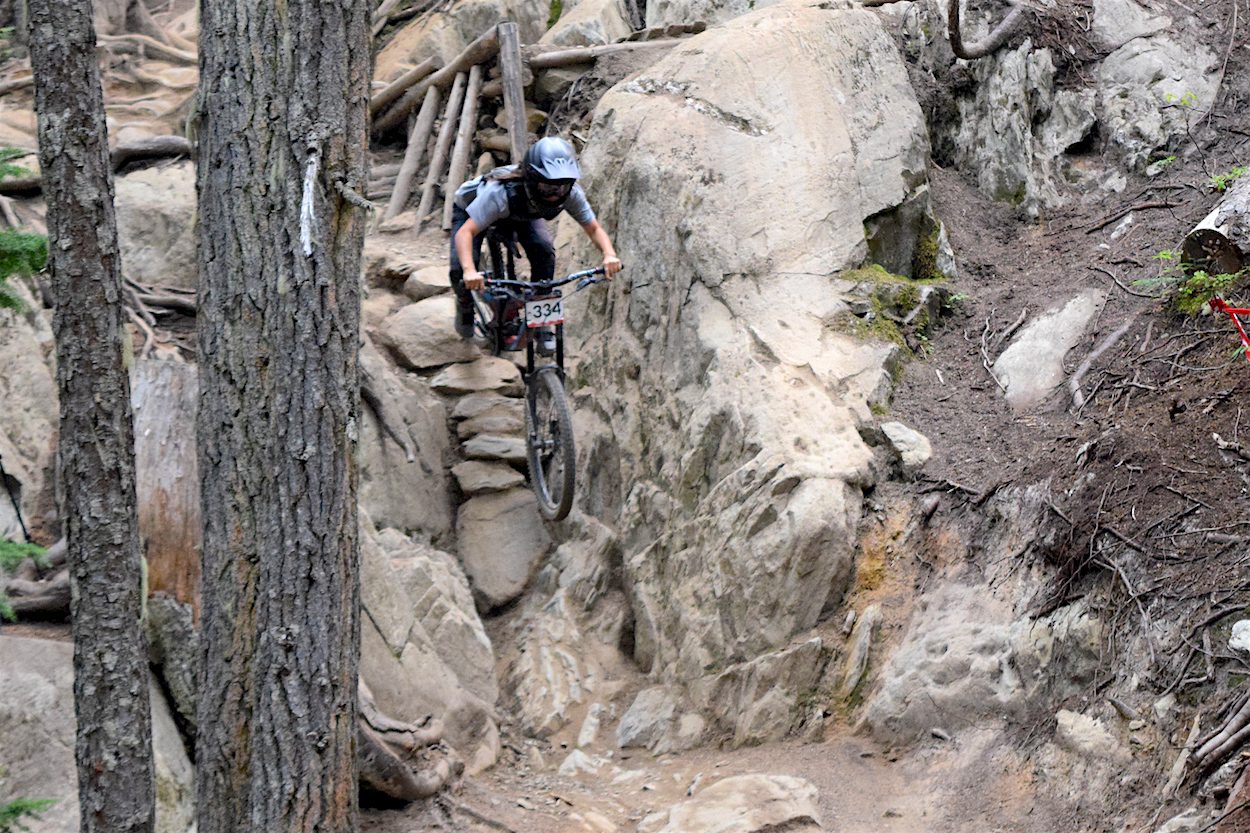
The highs and lows of social media
For now, Pageau’s finding confidence wherever she can. One more unexpected place is Instagram.
“It’s actually nice to see on social media some of the pros like Tahnée Seagrave sharing that they have the same doubts sometimes,” Pageau says. “Like, she’s number five in the world right now and she’s having those same doubts. So maybe I can do this.”
Alongside that type of connection, the Canadian is realistic that Instagram comes as a mixed bag of opportunity and extra work for aspiring athletes.
“It expands our ways to offer support to sponsors. It used to be just results, it didn’t matter how nice or funny you were. Now you have another way to market yourself, because that’s what your are to sponsors – a walking ad. I’m fortunate that I’m pretty good at it, but at the same time, training and racing are already a full time job. On top of my other jobs and school, this is just more on top of that.”
Just like there is for the rest of us, Pageau admits that despite the more professional approach to Instagram, it still comes with the pitfalls of constant comparison, too.
For her own approach, the Canadian just try’s to be as real as possible.
“I try really hard to have a really honest presence on socials. I share the good, the bad, the funny, and sometimes the stupid.”
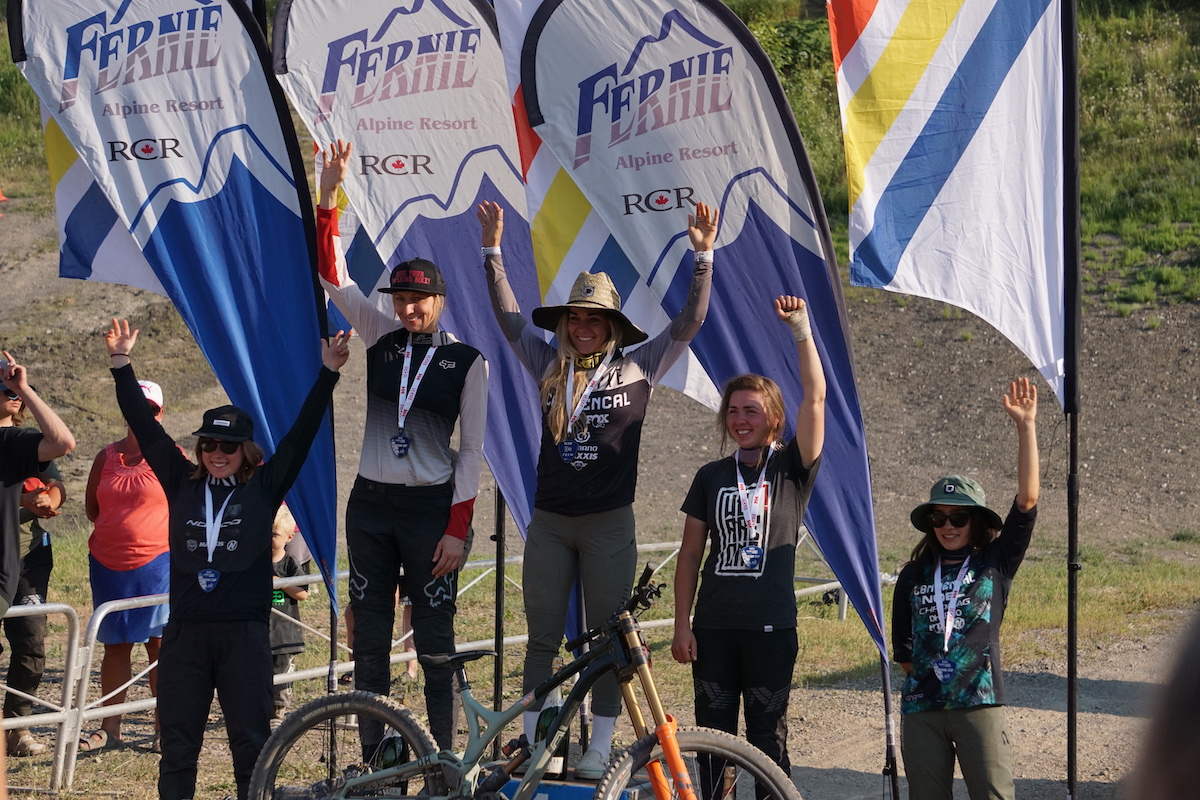
What’s Next? From worlds to Crankworx and beyond
Pageau is in Val di Sole for this weekends world championships. While that would usually mark the end of a season, her calendar is still busy. From there, she heads to Lenzerheide World Cup then home for a week. Then she’ll drive to the Snowshoe double World Cup round and Crankworx B.C. before finally ending her season back in North Carolina for Collegiate Nationals.
“It’s crazy because the seasons’ been going forever,” says Pageau, “But there’s two months of racing still for me.’
From there, the real decisions start. Pageau graduates from Brevard this fall and is already plotting her next move.
“I’ll either move back to Canada or stay and go to grad school, or go full van life and follow the weather training,” she says, before admitting “The option I’m leaning towards is doing all three at once.”
Plus a full World Cup season and some Enduro World Series events.
“I wish I could say I want to settle down and have a chill life, but that would be a lie. I think I do better when I’m really busy. That’s when I’m most productive, that’s when I got the most fit. So I’ll just keep going like that.”
“I was even thinking maybe race xc again,” she adds, “Just to see. Like, do all three at once.”
For now, Pageau’s focused on worlds, and looking forward to reconnecting with the Canadian team in Italy.
“We have a lot of good juniors coming up. It’s been great having a big field at Canada Cups again and it’ll be exciting to ride with them all next week!”
